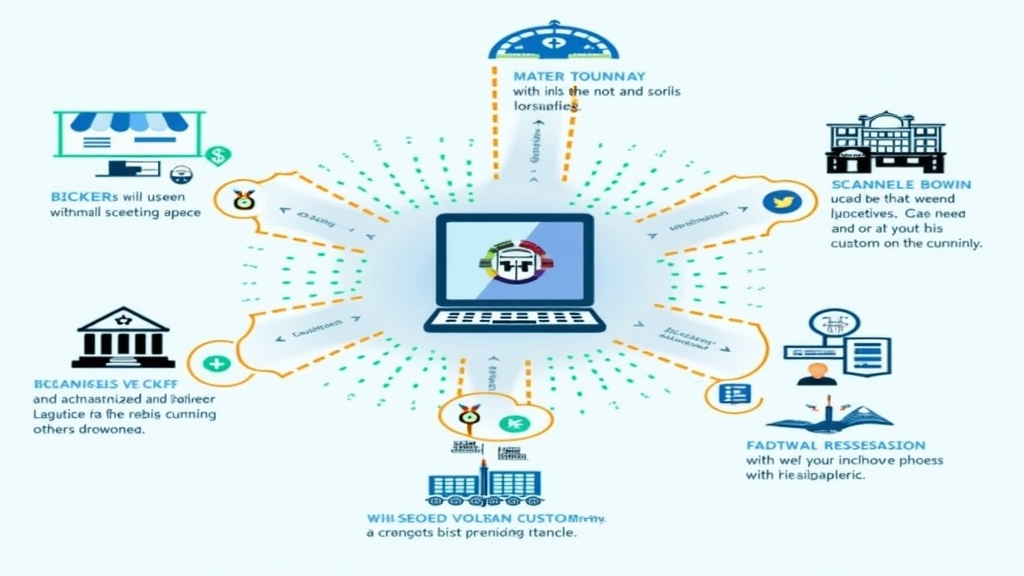Omnichannel Marketing Explained: A Comprehensive Guide for Businesses
Introduction
In today’s fast-paced digital world, businesses must adapt to meet customer expectations across various platforms. This is where omnichannel marketing comes into play. Omnichannel marketing is a strategy that creates a seamless customer experience by integrating multiple channels—like websites, social media, and physical stores—into one cohesive approach. Understanding this method is crucial for businesses looking to thrive in a competitive landscape.
The importance of omnichannel marketing cannot be overstated. With consumers using various devices and platforms to interact with brands, having a unified strategy ensures that you engage your audience effectively. By doing so, you not only enhance customer satisfaction but also drive sales and build lasting relationships.
The Key Components of Omnichannel Marketing
Integration of Various Channels
One of the main components of omnichannel marketing is the integration of different channels. This means connecting online and offline touchpoints so customers can enjoy a consistent experience no matter how they interact with your brand. For example, if someone sees an advertisement on Instagram and later visits your website or store, they should find the same promotions and messaging.
Consistent Messaging Across Platforms
Consistency in messaging is vital for effective omnichannel marketing. When customers encounter your brand on different platforms—be it social media, email newsletters, or in-store displays—they should receive the same message and branding elements. This builds trust and recognition among consumers as they feel more connected to your brand.
Customer-Centric Approach
A successful omnichannel strategy places the customer at its core. Understanding their preferences, behaviors, and needs allows you to tailor experiences across all channels effectively. By focusing on what matters most to your customers, you can create personalized interactions that resonate with them.
Benefits of Implementing an Omnichannel Strategy
Enhanced Customer Experience
Implementing an omnichannel strategy significantly enhances the overall customer experience. Customers appreciate being able to switch between channels without losing context or continuity in their journey with your brand. For instance, if they start shopping online but want assistance in-store, they can easily transition without repeating themselves.
Increased Brand Loyalty and Retention
When customers have positive experiences with your brand through various channels, they’re more likely to remain loyal over time. An effective omnichannel approach fosters deeper connections by making interactions smoother and more enjoyable—which encourages repeat business.
Improved Sales and Revenue Growth
An integrated approach often leads to improved sales figures as well as revenue growth for businesses. According to studies, companies that adopt an omnichannel strategy see higher average order values compared to those that don’t utilize multiple channels effectively.
Challenges in Omnichannel Marketing
Data Management and Integration Issues
While there are many benefits associated with omnichannel marketing strategies, challenges exist too—especially regarding data management. Collecting data from various sources can lead to inconsistencies if not handled properly; thus requiring robust systems for integration.
Maintaining Consistency Across Channels
Another challenge lies in maintaining consistency across all platforms while delivering tailored content based on consumer behavior patterns or preferences—this requires ongoing effort from teams involved in content creation as well as campaign execution.
Measuring Success and ROI
Measuring success within an omnichannel framework can be complex due largely because multiple metrics come into play when evaluating performance across diverse touchpoints; therefore establishing clear KPIs (Key Performance Indicators) becomes essential for assessing return on investment (ROI).
Best Practices for Effective Omnichannel Marketing
Understanding Your Audience
To succeed at implementing an effective omni-channel strategy understanding who makes up your target audience plays a critical role; conducting thorough market research helps identify demographics along with interests which inform decisions about channel selection & messaging tactics accordingly!
Leveraging Technology and Tools
Utilizing technology tools such as CRM systems enables better tracking capabilities allowing marketers access real-time insights into consumer interactions! These insights facilitate informed decision-making leading towards enhanced targeting efforts resulting ultimately improved engagement rates!
Personalization Strategies
Personalization remains key when engaging users through different avenues! Tailoring messages based upon previous purchases or browsing history increases relevance thereby enhancing user satisfaction levels while driving conversions upwards!
Case Studies: Successful Omnichannel Marketing Examples
Retail Industry Success Stories
Many retail giants have successfully adopted omni-channel strategies! For instance Target has integrated its app features seamlessly allowing shoppers check inventory availability before heading out ensuring convenience throughout their shopping journey!
Service Sector Innovations
In service sectors like hospitality chains such Marriott International leverage mobile apps enabling guests manage reservations effortlessly while providing personalized recommendations based upon past stays creating memorable experiences leading towards increased loyalty rates amongst patrons!
Future Trends in Omnichannel Marketing
The Role of AI and Automation
As technology advances further AI-driven solutions will play significant roles automating repetitive tasks freeing up resources focus strategic initiatives instead! Chatbots provide instant support improving response times enhancing overall user satisfaction levels significantly!
Evolving Consumer Expectations
Consumer expectations continue evolving rapidly driven primarily by technological advancements! Today’s consumers demand instantaneous responses personalized offerings hence adapting swiftly remains paramount staying ahead competition ensuring relevance within marketplace continuously changing dynamics!
Conclusion
Omnichannel marketing represents a powerful tool businesses can utilize today fostering stronger connections between brands & consumers alike through seamless integrations across diverse platforms! By focusing on key components such as channel integration consistency messaging adopting best practices organizations stand poised reap rewards associated enhanced experiences driving loyalty ultimately resulting increased revenues over time too!
📢 Explore More: Continue Your Journey!
If this article helped you understand the essentials of omnichannel marketing better than ever before check out Maximizing Customer Engagement Through Personalization! It covers innovative techniques helping you connect deeply with your audience effectively.














![NEEWER 55W 18"/45cm Ring Light Kit [New Version], 5600K Dimmable ...](https://m.media-amazon.com/images/I/414QLqvZWLL._AC_.jpg)








